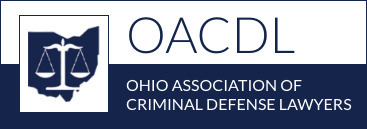Complete Story
Abuse of Discretion Review for Expungement Denials: Findings Necessary for a Determination
By: Megan Patituce
www.patitucelaw.com/Megan-Patituce
Failure to demonstrate the exercise of discretion can be an abuse of discretion itself. In State v. Bell, 6th Dist. Wood No. WD-19-065, 2020-Ohio-3750, the Sixth District was compelled to remind trial courts that when a defendant applies for an expungement, the trial court must make findings pursuant to R.C. 2953.32.
Mr. Bell filed an application seeking the expungement of his third-degree felony conviction for aggravated drug trafficking. In that application, he alleged that he was an eligible offender under the statute. The prosecution opposed his application, arguing that Mr. Bell was not an eligible offender. The trial court denied Mr. Bell’s application stating only that “upon due consideration, the Court finds said motion not well taken.” As “not well taken” is vague and unsupported by any findings in the record, the Sixth District Court of Appeals found itself unable to determine whether the denial was an abuse of discretion.
The statute unambiguously sets forth the steps that must be taken once an application has been filed by a defendant, including the requirement that the trial court schedule a hearing. Further, R.C. 2953.32 requires the trial court to make five findings, including whether the defendant is an eligible offender.
In this case, the prosecution argued that not only did Mr. Bell’s underlying conviction make him ineligible, but he had other convictions which would also bar him. The trial court denied Mr. Bell’s application without making any findings as to why there had been no hearing scheduled and the basis upon which the denial was based. The Sixth District, therefore, held that the trial court had abused its discretion. The case was remanded for the trial court to make findings in support of the denial.

